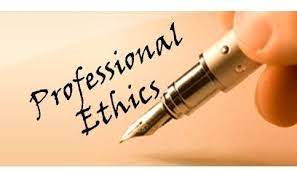Professional ethics play a crucial role in various aspects of society, influencing the conduct of individuals within specific fields and contributing to the overall well-being of communities. These ethical principles guide professionals in making responsible decisions, maintaining integrity, and upholding a standard of behavior that fosters trust and respect. The importance of professional ethics can be observed across diverse professions, including medicine, law, business, and education, where adherence to ethical standards is fundamental for the sustainability and credibility of these fields.
One of the primary reasons why professional ethics are essential is the trust they instill in the public. Professionals are often entrusted with significant responsibilities and have a direct impact on individuals’ lives. For instance, in the medical field, ethical standards ensure that healthcare practitioners prioritize patient well-being, confidentiality, and informed consent. When professionals adhere to these ethical guidelines, it builds confidence in the public, reinforcing the idea that professionals are committed to their duties and prioritize the interests of those they serve.
Moreover, professional ethics provide a framework for decision-making, especially in situations where choices may have moral implications. In fields such as law and business, where decisions can have far-reaching consequences, ethical guidelines offer a compass for professionals to navigate complex situations. This helps maintain a sense of fairness, justice, and accountability, contributing to a more equitable and just society.
Ethical conduct within professions also enhances the overall reputation of the field. A profession with a strong commitment to ethical standards is more likely to attract talented and principled individuals. This, in turn, fosters a positive image of the profession and contributes to its long-term viability. A tarnished reputation due to ethical lapses can have severe consequences, including legal repercussions, loss of public trust, and damage to professional standing.
Additionally, professional ethics promote a culture of continuous improvement and self-regulation. Professionals are encouraged to engage in ongoing education and training to stay abreast of new developments in their fields and to adhere to the latest ethical standards. This commitment to professional growth helps ensure that practitioners provide the highest quality of service, incorporating advancements in knowledge and technology while maintaining ethical integrity.
In many professions, ethical guidelines are not only recommended but are also legally mandated. Violations of these ethical standards may result in disciplinary actions, including revocation of professional licenses. This legal dimension underscores the seriousness of adhering to ethical principles and emphasizes their importance in maintaining the integrity of various professions.
In conclusion, the importance of professional ethics cannot be overstated. These ethical guidelines serve as a foundation for trust, guide decision-making in complex situations, enhance the reputation of professions, and contribute to the overall well-being of individuals and communities. By upholding professional ethics, practitioners not only fulfill their obligations to their clients or patients but also play a vital role in shaping a society that values integrity, fairness, and accountability.

